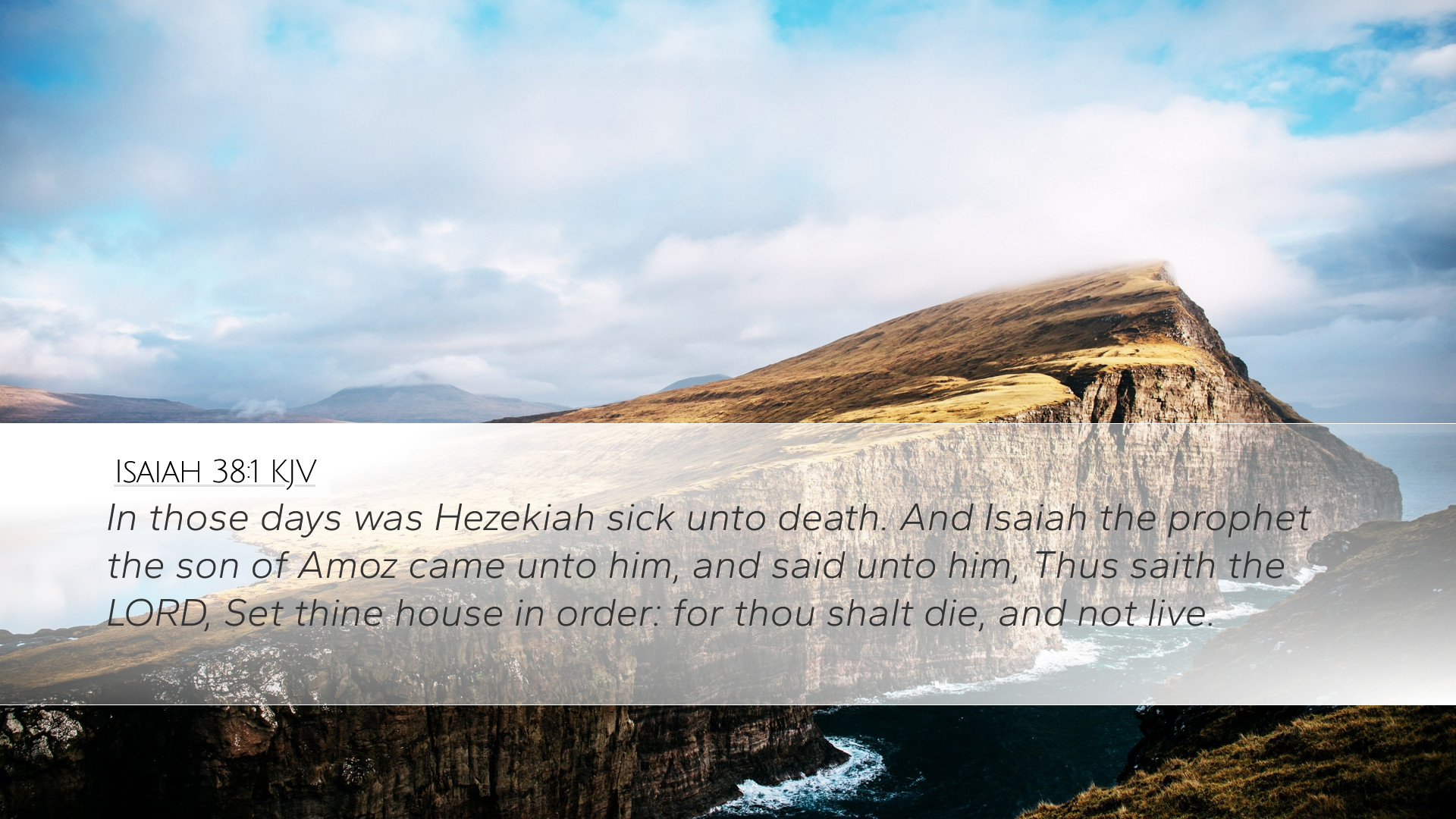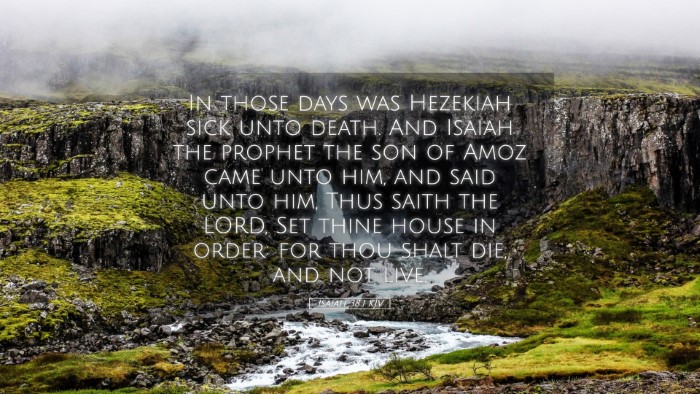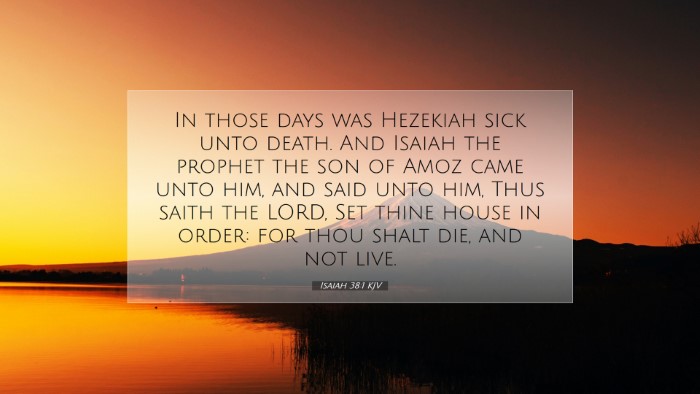Commentary on Isaiah 38:1
Isaiah 38:1 states:
"In those days was Hezekiah sick unto death. And Isaiah the prophet the son of Amoz came unto him, and said unto him, Thus saith the Lord, Set thine house in order; for thou shalt die, and not live."
This verse marks a pivotal moment in the life of King Hezekiah, showcasing profound theological insights about divine sovereignty, human frailty, and the power of prayer. Let us delve into the combined commentary from various public domain sources to glean meaningful teachings for pastors, students, theologians, and Bible scholars.
Historical Context
The backdrop of this verse is set during the reign of King Hezekiah of Judah, who is noted for his reforms and faithfulness to God. As scholars like Matthew Henry and Albert Barnes acknowledge, Hezekiah is a pivotal figure in the Southern Kingdom, a leader who passionately sought to restore proper worship and the nation's integrity.
Hezekiah's illness conveys a moment of vulnerability in his reign, highlighting that even the most devout and capable leaders are not exempt from suffering and mortality. Adam Clarke emphasizes that physical illness serves as a reminder of human mortality, prompting leaders and followers alike to consider their spiritual condition and preparedness.
The Prophetic Encounter
Isaiah, as the prophet of God, plays a crucial role in delivering the divine message to Hezekiah. The phrase "Thus saith the Lord" underscores the authority and finality of God's word delivered through prophets. As Albert Barnes points out, this moment illustrates a significant aspect of divine communication, where God intervenes directly in the life of His servant.
Hezekiah’s immediate response to Isaiah's pronouncement reflects a deeply personal confrontation with death. Matthew Henry notes that the command to "set thine house in order" signifies preparation not only in a practical sense but also in a spiritual and relational aspect—encouraging Hezekiah to ensure that his affairs are in accordance with God’s will.
The Seriousness of Mortality
The declaration of impending death serves as a sobering reminder for both leaders and congregants that life is fragile. Adam Clarke argues that this confrontation with mortality can lead to profound spiritual reflection and renovation. Such moments urge individuals to assess their lives, relationships, and especially their standing before God.
Matthew Henry emphasizes that the gravity of the situation calls for personal introspection—not merely of physical well-being but also of one's spiritual standing before God. The notion of ‘setting one’s house in order’ can be understood as a comprehensive adjustment that integrates ethical living and devotion to God’s commandments.
The Role of Prayer
Hezekiah’s response to Isaiah's message is not recorded in the verse itself, but we see his earnest prayer shortly thereafter in verses 2-3. This aspect is elaborated upon by all three commentators. Albert Barnes remarks on the power of prayer in the life of Hezekiah, emphasizing that a heartfelt plea to God evokes mercy and the possibility of changing circumstances.
Hezekiah’s prayer becomes a model for believers today, showcasing the importance of bringing one’s petitions before God, especially in times of crisis. Matthew Henry highlights that sincere prayer can invoke divine compassion and alter the course of events as we see in the narrative that follows—the extension of Hezekiah's life by fifteen years.
Theological Implications
This passage raises significant theological concepts such as divine sovereignty, human agency, and the interplay between God's will and human intercession. Adam Clarke notes that the chronicled event provides insight into God’s character, illustrating that while God’s word is absolute, He is also responsive to the cries of His people.
Furthermore, the assurance given to Hezekiah invites reflection on the nurturing facets of God's nature; it reminds followers that even in moments of dire prediction, there is room for hope and transformation. Albert Barnes opines that God's willingness to listen reflects His unceasing desire for relationships with His creation, encouraging believers to embrace the ministry of intercession.
Conclusion
Isaiah 38:1 invites deep reflection concerning mortality, preparedness, and divine mercy. As pastors, students, theologians, and scholars study this text, they should consider the broader implications of what it means to ‘set one’s house in order.’ This entails being thoroughly devoted to cultivating a relationship with God, ensuring readiness for whatever the future may hold, and understanding the profound impact of prayer in the life of believers.
In summation, Hezekiah’s encounter with death serves as a rich source for theological reflection, emphasizing the importance of living with intentionality and faith. As the community of faith contemplates this narrative, they are encouraged to approach God with their worries, confident in His power and compassion.


